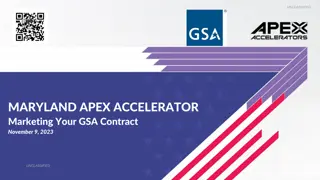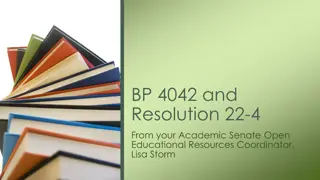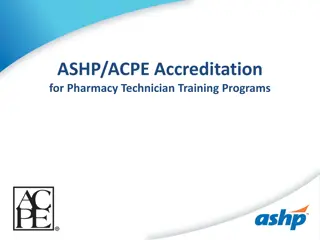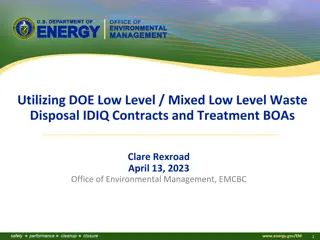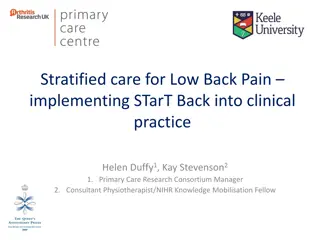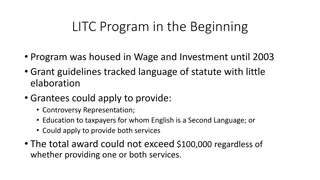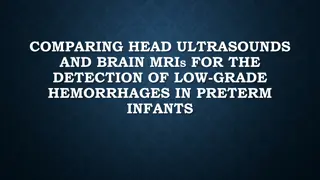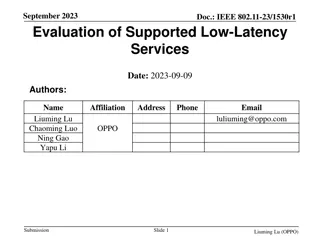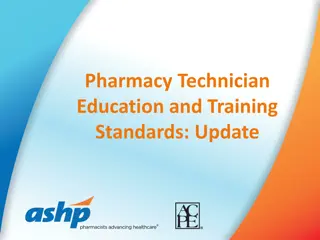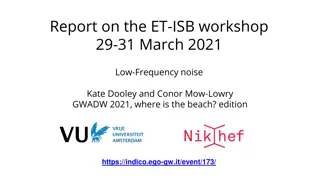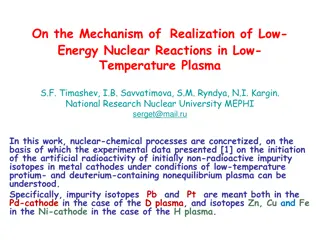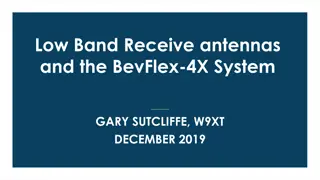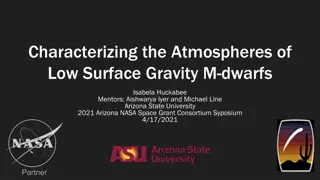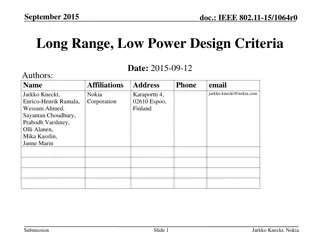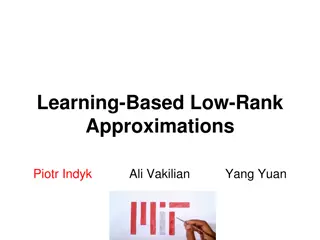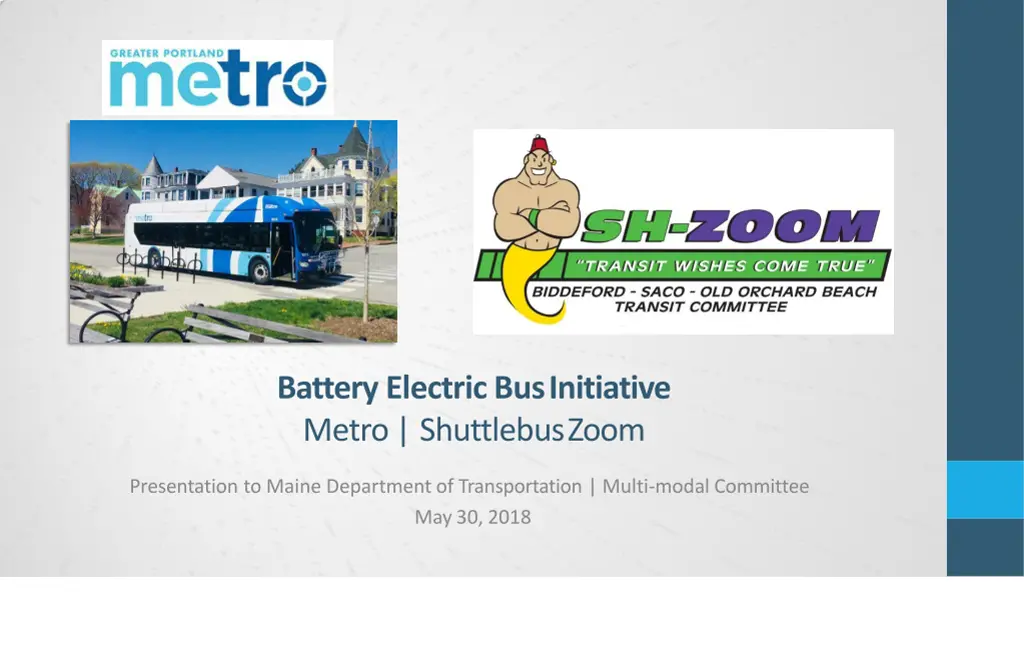
Battery Electric Bus Initiative Overview and Benefits
"Explore the battery electric bus initiative involving Metro and Maine Department of Transportation. Learn about the proposed project scope, deployment statistics, historical challenges, and advantages such as higher fuel economy, price stability, and reduced exterior noise. Discover why battery electric buses are a sustainable transportation solution for the future."
Download Presentation

Please find below an Image/Link to download the presentation.
The content on the website is provided AS IS for your information and personal use only. It may not be sold, licensed, or shared on other websites without obtaining consent from the author. If you encounter any issues during the download, it is possible that the publisher has removed the file from their server.
You are allowed to download the files provided on this website for personal or commercial use, subject to the condition that they are used lawfully. All files are the property of their respective owners.
The content on the website is provided AS IS for your information and personal use only. It may not be sold, licensed, or shared on other websites without obtaining consent from the author.
E N D
Presentation Transcript
Battery Electric BusInitiative Metro | ShuttlebusZoom Presentation to Maine Department of Transportation | Multi-modal Committee May 30, 2018
Proposed ProjectScope 4-8 Battery Electric Buses 35-40 foot Replaces pre-2009 existing fleet Depot + Overhead Charging capability Manufacturer: Proterra Project Management: Center for Transportation and the Environment Federal, State and Local Funding First phase of a long-term shift to zero emission buses. 2 Eliminate transit s impact on local air quality, reduce operating costs,
Battery Electric BusOverview Number of BEB Manufacturers: 9 (3 legacy transit builders, 6 relative new-comers) Deployments Nationally: 102 deployments of 655 buses (TCRP,2018) Deployments Globally: 173,000 as of 2015 (170,000 in Chinaalone) FTA Lo-No Grant Program: Incentivizing transit agencies to pursue zero emission buses. Closest Peers with existing deployments: MBTA (Boston, MA) Park City Transit (Park City, Utah) PVTA (Springfield,MA) WRTA (Worcester, MA) 3
Battery Electric BusOverview Major Historical Challenges: Capital cost comingdown Range limitations goingup Agency technical capacity externalsupport Availability and reliability approaching conventionalbuses Extreme climate limits still a concern depending on dutycycles Major variables driving BEB projectscope: Bus and route duty cycles (route length, speed, grades, layovers, blocking); Passenger loads; Climate and weather; Layover and transit facility locations and space; Garage space and power; Utility rate schedules and costs. 4
WhyBatteryElectricBuses?HigherFuel/EnergyEconomy 5 Source: Battery Electric Buses State of the Practice (TCRP, 2018)
Why BatteryElectricBuses? Greater PriceStability 6 Source: Battery Electric Buses State of the Practice (TCRP, 2018)
WhyBatteryElectricBuses?LessExteriorNoise 7 Source: Battery Electric Buses State of the Practice (TCRP, 2018)
Why BatteryElectricBuses? Minimal InteriorNoise 8 Source: Battery Electric Buses State of the Practice (TCRP, 2018)
Why BatteryElectricBuses? Lower Well-to-WheelCO2 9 Source: Battery Electric Buses State of the Practice (TCRP, 2018)
Why BatteryElectricBuses? Lower Well-to-WheelCO2 10 Source: Battery Electric Buses State of the Practice (TCRP, 2018)
WhyBatteryElectricBuses?AdditionalReasons Lower operating costs contingent on operating environment, utility rates. Lower maintenance costs fewer moving parts to fail, fewer brakes jobs. Metro s investment in CNG carries risks due to sole in-state CNG fuel station. Significant federal grant to support buses, charging infrastructure, and project management and training Auto, trucking and transit industry is trending toward electric propulsion. Marketing potential related to zero emission buses can build ridership. 11
WhyNow? FTA Low-No Emission Grant Program ($84 million): FTA incentives to motivate transit agencies to deploy BEB s (e.g., waiving procurement req.) Congress increased program funding from $55 to $84million. Program authorized through FFY 2020. State of Maine VW SettlementFunding: Eligible use for replacement of pre-2009 diesel buses with electric/zero emission buses. Metro and Shuttlebus have pre-2009 diesel buses without funding programmed for replacement. Use of funding practically effective and high profile. Begin Transition to Zero-emission Fleets Every near-term diesel/CNG bus purchased slows transition to zero-emission fleet. Leverage current federal support for extensive project management and training in order to build Maine s technical capacity. 12
CTE Project ManagementServices Coordinates completion of FTA Lo-No Grant Application. Route modelling to determine optimal deployment. Rate modelling to determine electricity costs compared to diesel/CNG. Develops bus specifications and support agencies in executing OEM contract. Oversees resident vehicle inspections. Oversees acceptance testing and FTA documentation requirements. Performance monitoring and reporting. Completes FTA quarterly reports on grant. Guides process, knows technology, understands pitfalls, helps agencies build internal capacity. 13 PACTS Region CAD/AVL Project PM/Technical consulting costs were 10% of total project cost
ManufacturerEvaluation Sources: FTA Altoona Testing Reports Meetings with Peer Sites MediaReports Manufacturer Documentation 14
Peer Review onProterra Buses WRTA (Worcester, MA); PVTA (Springfield, MA); Park City Transit (Park City, Utah); Foothill Transit (Los Angeles, CA): Positives: Satisfied with Proterra s buses, product-tech support and responsiveness. Parts availability and shipping are good. CTE partnership worthwhile at least through production-delivery. Battery technology. Negatives: Parts more expensive Possible cabin heating concerns Initial issues with bus building (Worcester, MA): occurred 2013-14 - Resolved Single front windshield Lighter weight buses with smaller battery packs not as good in winter 15
Initial ProjectScoping ISSUES STATUS OUTCOME Partner Selection: Complete Proterra/CTE Metro requires daily minimum of 175 miles and 17 hours Zoom requires daily minimum of 261 miles and 17 hours. Determine Min. Bus RangeNeeds: Complete Utility Coord./Power Evaluation: Inprogress Meeting with Central Maine Power Electricity Rate Analysis and Costs: Inprogress TBD Route and Duty CycleAnalyses Inprogress TBD ChargingModel: Inprogress Depot Charging and/or OverheadConductive Determine Bus Model/Battery Size: Inprogress Proterra s E2 has nominal range of 302 miles Factor down x% forcold Factor down y% forgrades Factor down z% for high pass.volumes 16 Model Net Fuel/Maint. Cost Savings: In progress TBD General Funding Approach: In progress Cost/Budget ScenariosDeveloped
Overhead Charging(On-Route) Depot Charging(Garage) 17
2018 FTA LOWNO EMISSION BUS GRANT PROGRAM MaineDOT | METRO | SHUTTLEBUS ZOOM Preliminary Cost Estimates and Funding Strategy Subject toRevision Revised June 6, 2018 FULL PROJECT | 2 SITES | DEPOT CHARGING + OVERHEAD CHARGING Project Overview Budget Metro Shuttlebus QTY QTY Proposed Funding Strategy Fed: 5307 3% Estimated UnitCost Estimated Budget Fed: Lo No 59% State 33% Local 5% Total 100% Project Element Buses Initial Parts Inventory Depot Chargers Depot Charger Installation Engineering Transformer to Facilty Depot Charger Installation Overhead Charging Unit Overhead Charging Engineering Overhead Charging Installation Project Management* Training Sub total 4 1 4 1 1 4 1 1 1 1 1 4 1 4 1 1 4 1 1 1 1 1 $ $ $ $ $ $ $ $ $ $ $ 750,000 50,000 50,000 25,000 30,000 60,000 350,000 50,000 250,000 270,000 50,000 $ 6,000,000 $ 100,000 $ 400,000 $ $ $ 480,000 $ 700,000 $ 100,000 $ 500,000 $ 540,000 $ 100,000 $ 9,030,000 38% 100% 100% 100% 100% 100% 100% 100% 100% 100% 100% $ 2,280,000 $ 100,000 $ 400,000 $ $ $ 480,000 $ 700,000 $ 100,000 $ 500,000 $ 540,000 $ 100,000 $ 5,310,000 5% 0% 0% 0% 0% 0% 0% 0% 0% 0% 0% $ 300,000 $ $ $ $ $ $ $ $ $ $ $ 300,000 50% 0% 0% 0% 0% 0% 0% 0% 0% 0% 0% $ 3,000,000 $ $ $ $ $ $ $ $ $ $ $ 3,000,000 7% 0% 0% 0% 0% 0% 0% 0% 0% 0% 0% $ 420,000 $ $ $ $ $ $ $ $ $ $ $ 420,000 $ 6,000,000 $ 100,000 $ 400,000 $ 50,000 $ 60,000 $ 480,000 $ 700,000 $ 100,000 $ 500,000 $ 540,000 $ 100,000 $ 9,030,000 50,000 60,000 50,000 60,000
Timeline andMilestones FTA Lo-No Grant Submittal Deadline: June 18, 2018 Anticipated AwardNotices: September2018 Contract Execution withProterra/CTE: October-December2018 Bus Production (14months): January 2019-February2020 Anticipated Delivery: February2020 Testing-Acceptance: February-March 2020 Revenue Service: Late Spring 2020 18


